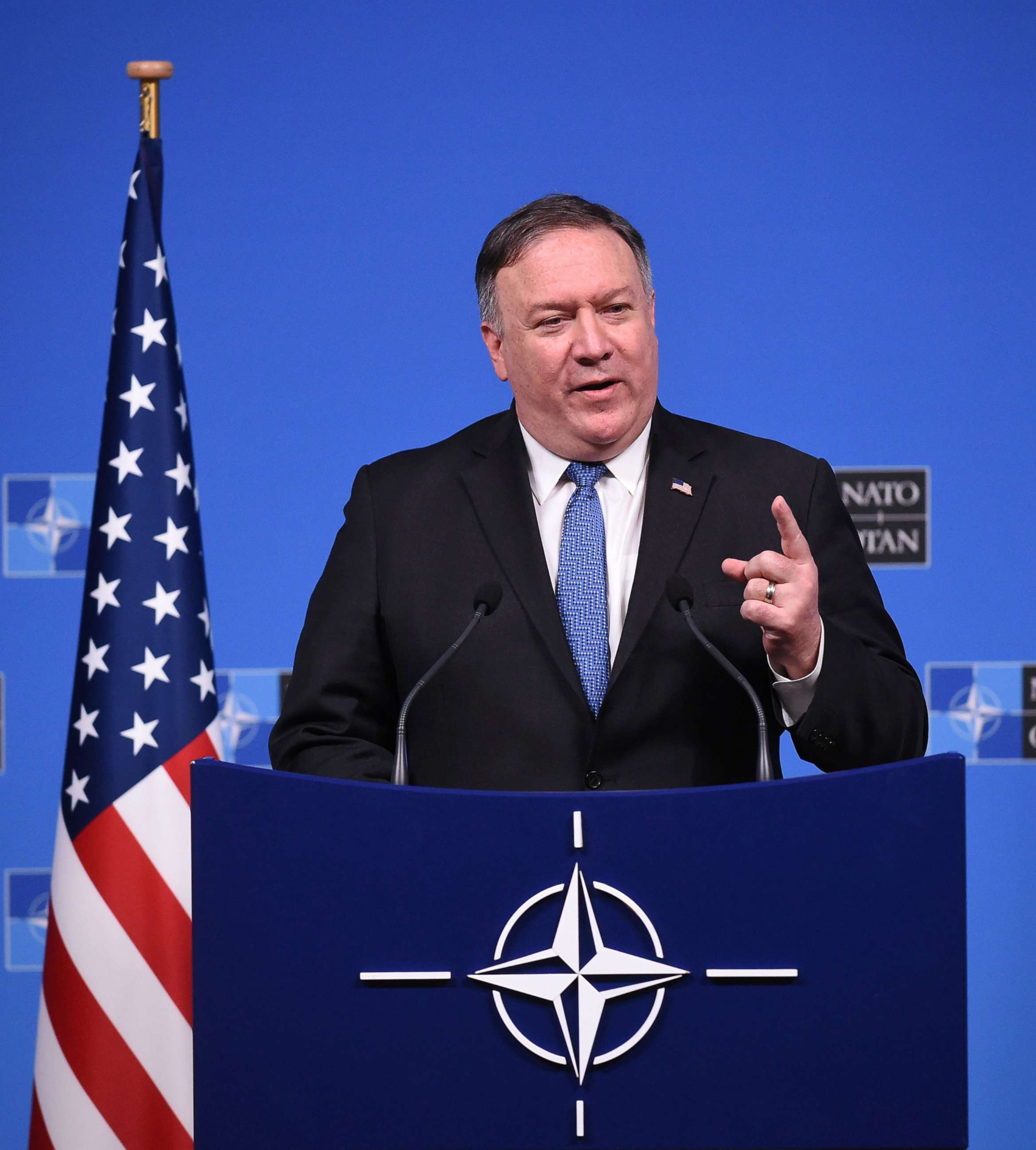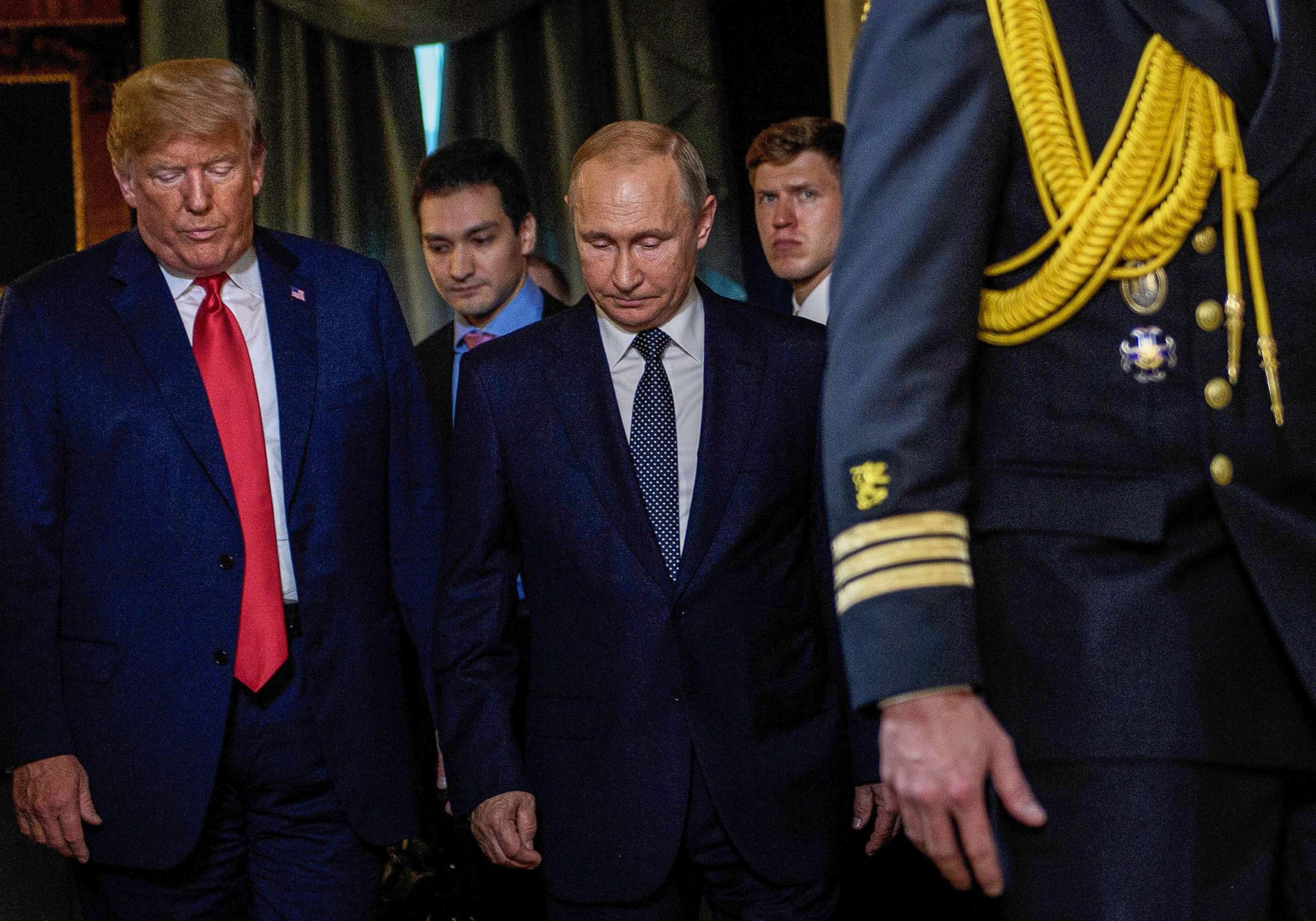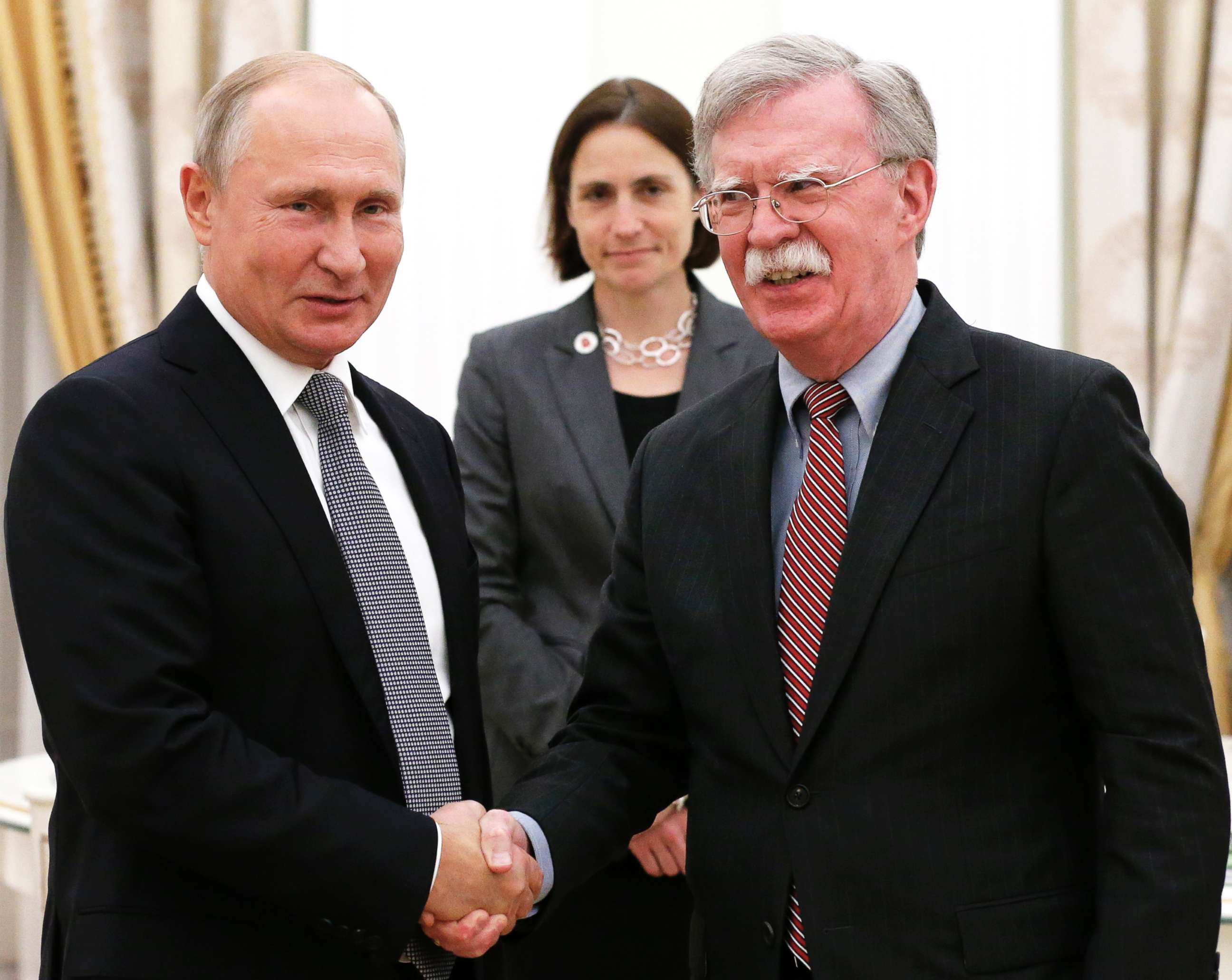Pompeo says US suspending landmark nuclear deal because of Russian violations
Russia has denied violating the INF treaty.
One of the key treaties that helped to end the Cold War and reduce nuclear tensions between the U.S. and the Soviet Union and now Russia could be dead within a matter of months.
Secretary of State Mike Pompeo announced at NATO Headquarters Tuesday that the U.S. will suspend its obligations under the Intermediate-Range Nuclear Forces treaty in 60 days because of Russia's continued violations of the treaty, shortly after NATO's foreign ministers affirmed its support for that conclusion in a new joint statement.
"We had a party-- a treaty that had two parties, only one of which is compliant!" Pompeo said Tuesday in Brussels, Belgium. "That's not an agreement, that's just self-restraint, and it strategically no longer made sense to remain in that position."
President Trump and National Security Adviser John Bolton had previously suggested the U.S. would withdraw from the treaty, but Pompeo's announcement Tuesday officially starts the clock.
The decision comes as the U.S. seeks to counter a "larger pattern of Russian lawlessness on the world stage," according to Pompeo, but also to take on China's growing military power, with the top U.S. diplomat warning the treaty gives China a military advantage. But to some arms control experts and Democrats in Congress, the decision was a hasty one that will make the world less safe.

The U.S. will remain in compliance for the next 60 days and then begin the six-month notice period before withdrawal, he said, adding that if Russia comes back into compliance before then, the U.S. could remain in the agreement.
"We would welcome a Russian change of heart, a change in direction, the destruction of their program, and their followed-on continuance of the terms of the treaty, and so over the next 60 days they have every chance to do so," he said. "But there's been no indication to date that they have any intention of doing so."
Pompeo said there is "complete unity" among NATO members on this decision, and it comes after the Foreign Ministers of NATO released a joint statement that says Russia's development and deployment specifically of the 9M729 missile system "poses significant risks to Euro-Atlantic security" and "is in material breach of its obligations under the INF Treaty," paving the way for U.S. withdrawal.
The U.S. has remained in compliance of the treaty, the group added, despite claims by Russia to the contrary.
Russia has denied violating the INF treaty, at first denying the existence of the weapons system and then later admitting it existed but arguing it was in compliance.

Russia's violations of the landmark nuclear treaty are also part of a "larger pattern of Russian lawlessness on the world stage," Pompeo added, citing its invasions of Georgia and Ukraine, its intervention in Syria in support of the Assad regime, its election interference in the U.S. and other countries, its use of a nerve agent against an ex-spy in the U.K., and most recently its seizure of Ukrainian ships and sailors in international waters.
But Pompeo did give other reasons for U.S. withdrawal, including the fact that China is not a party to the treaty and is beefing up its military capabilities.
China, North Korea, and Iran are not obligated by the treaty's limitations, and, "This leaves them free to build all the intermediate range missiles they would like," he said. "There is no reason the United States should continue to cede this crucial military advantage to revisionist powers like China, in particular when these weapons are being used to threaten and coerce the United States and its allies in Asia."
There was no immediate response in Moscow to Pompeo's announcement, but Russian Defense Minister Sergey Shoygu said earlier on Tuesday that he and President Vladimir Putin had discussed how to take measures to increase Russian troops' "military capabilities" in response to a potential new "arms race."

"Measures were looked at for increasing the military capabilities of troops and forces in the conditions of an arms race, connected with the plans of the U.S. to withdraw from the Intermediate-range Nuclear Forces treaty," Shoigu said, according to Russian-state media.
President Trump lamented this possible arms race in a tweet Monday, calling on Putin and Chinese President Xi Jinping to meet to "start talking about a meaningful halt to what has become a major and uncontrollable Arms Race."
I am certain that, at some time in the future, President Xi and I, together with President Putin of Russia, will start talking about a meaningful halt to what has become a major and uncontrollable Arms Race. The U.S. spent 716 Billion Dollars this year. Crazy!
— Donald J. Trump (@realDonaldTrump) December 3, 2018
It's that concern that upset Congressional Democrats, blasting the administration's decision as a dangerous move that "play[s] directly into President Putin's plans," according to Rep. Adam Smith, the incoming Democratic chair of the House Armed Services Committee.
"The Trump administration should instead work with our allies to take meaningful actions to hold Russia accountable for its violation of the treaty, press Russia back into compliance, and avoid a new arms race," said Smith, D-Washington, in a statement.
ABC News's Patrick Reevell contributed to this report from Moscow.




